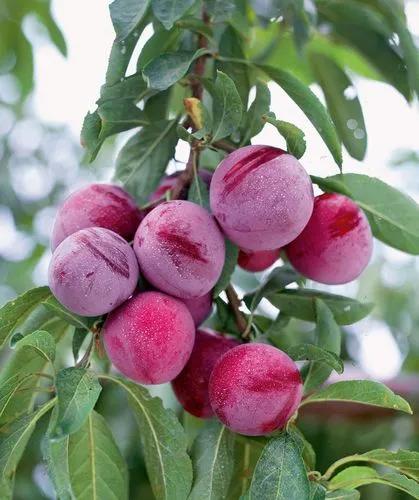A terrestrial bromeliad, up to 3 m tall, distributed from southern Mexico and the Caribbean south to Brazil, Colombia and Ecuador, where it grows in savannas, scrublands and deciduous forests, at elevations up to 1500 m. It forms rosettes of upright, lanceolate leaves with sharp spines along the margins, bright green above and grayish green below. As the plant matures, the leaves closer to the center of the rosette change their color to red while the ones at the exterior remain green. It develops an inflorescence with a multitude of pink-purple flowers with a whitish base, followed by juicy, edible fruits covered by a yellowish-brown husk. The fruits are traditionally used to prepare a delicious, refreshing drink called "Atol de Pina" and are much appreciated for their appealing, sweet-sour taste. The fruits ship well and are now being considered as a potential new crop for larger scale production. Bromelia karatas tolerates poor soils and drought and it is a very attractive, multi-purpose plant for tropical and warm-temperate regions.
Ananas Pingouin Care
Bromelia Karatas



What is the plant
How to Care for the Plant

Water

It prefers moist soil.

Sunlight

Requires a well-drained soil and a position in full sun[

Soil

Suitable for: light (sandy), medium (loamy) and heavy (clay) soils, prefers well-drained soil and can grow in nutritionally poor soil. Suitable pH: acid, neutral and basic (alkaline) soils.
Ease your plant care routine with PlantIn's personalized system.

Additional

The fruits have thin stinging hairs.
What's wrong with your plant?
Related Plants
Discover more plants with the list below
Popular articles






